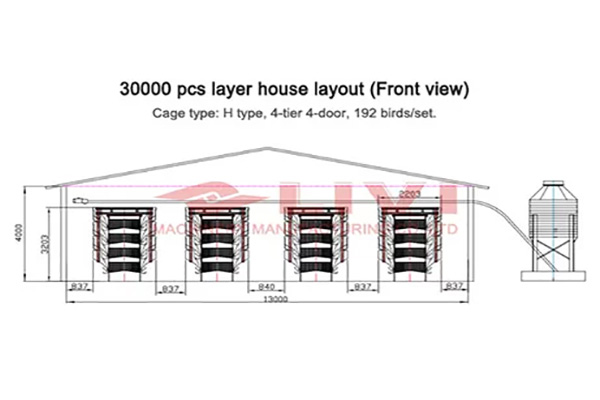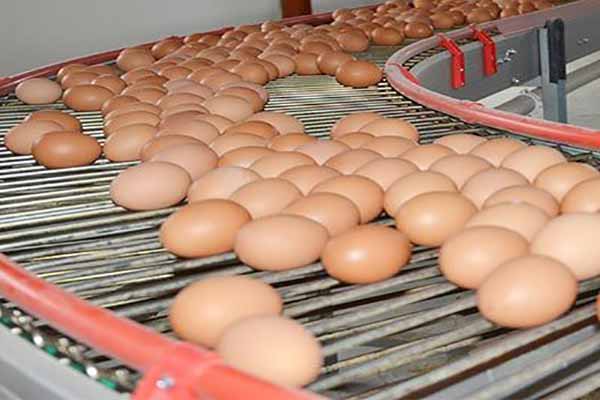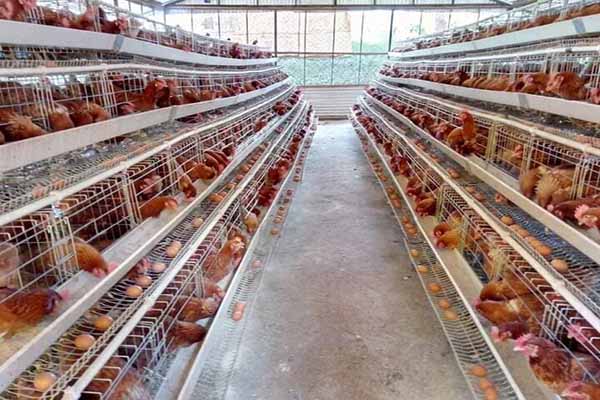Layer Cage Systems in South Africa for Egg Production: A Comprehensive Guide
Time : 2025-06-26
South Africa, with its diverse agricultural landscape, has become a significant player in the global egg production market. The adoption of advanced farming technologies, such as layer cage systems, has revolutionized the egg industry in the region. This article delves into the intricacies of layer cage systems in South Africa, focusing on their design, benefits, and the role they play in egg production. Let’s explore this in detail.
Introduction to Layer Cage Systems
Layer cage systems are designed to provide a controlled environment for egg-laying hens. These systems are commonly used in commercial poultry farming due to their efficiency and ease of management. In South Africa, these systems have gained popularity for their ability to produce high-quality eggs while ensuring the welfare of the hens.
Design and Construction of Layer Cage Systems
The design of layer cage systems in South Africa is tailored to meet the specific needs of the local egg industry. These systems typically consist of the following components:

- Cages: These are the primary units where hens are housed. They are designed to provide enough space for the birds to move around comfortably and lay their eggs.
- Feeding Systems: Automated feeding systems ensure that hens receive a balanced diet, which is crucial for optimal egg production.
- Watering Systems: Access to clean water is essential for hens’ health and egg quality. These systems are designed to provide fresh water to the birds at all times.
- Environmental Control: Temperature, humidity, and ventilation are critical factors in maintaining the health and well-being of hens. Advanced environmental control systems are integrated into layer cage systems to create an ideal living environment.
- Manure Management: Efficient manure removal systems are essential to maintain hygiene and prevent disease outbreaks.
The construction of layer cage systems in South Africa is carried out using high-quality materials that are resistant to corrosion and wear. This ensures the longevity and reliability of the systems.

Benefits of Layer Cage Systems in South Africa
Layer cage systems offer several benefits to the egg production industry in South Africa:

- Increased Egg Production: These systems provide a conducive environment for hens to lay eggs, resulting in higher production rates.
- Improved Egg Quality: The controlled environment ensures that eggs are laid in a clean and hygienic setting, leading to better quality eggs.
- Enhanced Animal Welfare: Layer cage systems are designed to minimize stress and discomfort for hens, promoting their overall welfare.
- Efficient Resource Utilization: These systems optimize the use of resources such as feed, water, and energy, reducing operational costs.
- Easy Management: The automated nature of layer cage systems simplifies the management process, allowing farmers to focus on other aspects of their operations.
Case Studies: Successful Implementation of Layer Cage Systems in South Africa
Several South African poultry farms have successfully implemented layer cage systems, leading to increased productivity and profitability. Here are a few notable examples:
- Farm A: By adopting layer cage systems, this farm experienced a 30% increase in egg production and a significant reduction in feed conversion rates.
- Farm B: The implementation of advanced environmental control systems in their layer cage systems resulted in a 20% improvement in egg quality.
- Farm C: This farm managed to reduce their water usage by 50% through the installation of an efficient watering system in their layer cage systems.
Future Trends in Layer Cage Systems
The egg production industry in South Africa is continuously evolving, and layer cage systems are expected to adapt to new trends. Some of the future developments include:
- Smart Farming Technologies: Integration of IoT (Internet of Things) and AI (Artificial Intelligence) in layer cage systems to enhance monitoring and management.
- Renewable Energy: Incorporation of renewable energy sources, such as solar power, to reduce the carbon footprint of poultry farms.
- Biodegradable Materials: Use of eco-friendly materials in the construction of layer cage systems to minimize environmental impact.
Conclusion
Layer cage systems have become an integral part of the egg production industry in South Africa. Their design, benefits, and future trends highlight their importance in ensuring sustainable and efficient egg production. As the industry continues to evolve, layer cage systems will undoubtedly play a crucial role in shaping the future of poultry farming in the region.











